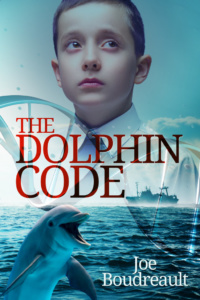 When we look at the creatures of the sea, we all have favorites we want to know more about. For some, it is the predators like the great white shark. For others it is the octopus or the cuttlefish, those magicians of the deep who can camouflage themselves so efficiently by changing skin color and patterns. And for still others, it may be the numerous jelly-like glowing animals with shivering and flashing inner lights and exotic shapes. For me, it was the nation of whales.
When we look at the creatures of the sea, we all have favorites we want to know more about. For some, it is the predators like the great white shark. For others it is the octopus or the cuttlefish, those magicians of the deep who can camouflage themselves so efficiently by changing skin color and patterns. And for still others, it may be the numerous jelly-like glowing animals with shivering and flashing inner lights and exotic shapes. For me, it was the nation of whales.
The whales are the largest creatures in our oceans – the blue whale being the largest creature who ever lived. Their behavior and life cycles are a bit of a mystery, but that mystery makes us look closer. Their social behavior prompts a lot of questions in us. Why are they so different? Dolphins are the smaller of the whales. Dolphins seem to be the most engaging of them all because they obviously seek out our company. They want to play with us, to tease us, even, it seems, to talk to us. Have you ever watched a choreographed dolphin show at an aquarium? I have.
It was inevitable that I would start to ask myself, what are these little whales thinking about? What is their story? What is their goal in life? What is their collective purpose here? I found myself thinking that they are more than just clever, they are intelligent. They think like us but they haven’t found a way to tell us that yet. But what if they did? Supposing that the world of dolphins was waiting and searching for that magical code that would open up their language to us, like a Rosetta Stone thoroughfare? Twenty years ago I wrote and submitted a short story that does just that. It didn’t go anywhere but I worked it through, adding human characters and dolphin characters along the way. I pretended that dolphins could speak to us in their songs. I imagined that their songs were huge and complex and had messages for us in them. I created a small boy who, by accident of nature, could cross the barrier between our languages. I placed the boy among other humans who could put it all together. This sounds like a fantasy, but some people do have special abilities in what they see and perceive. Supposing a person like that would meet up with a creature who had similar abilities? Supposing it was somehow the destiny of both species? My world of storytelling, as you can guess, is one of ‘suppose’ or ‘what if’.
The next time you greet your dog or caress your cat, try and think what your pet might possibly be thinking about you. Surely, there’s something going on there. Why not with other creatures? The world of Storyland is filled with such speculations. Aquariums are filled with pet whales. We study them and, I have no doubt, they study us. So I ran with the idea. It is probably not a spoiler to my novel to say that this boy, Corey, is autistic and autism gives that person a different order of senses. Their minds are ‘wired differently’. Light becomes sound and sound becomes vivid images and taste and touch is another dimension. This, I admit, is a bit of a gimmick, but such things do happen. Savants and prodigies do live among us. Supposing they live also among the dolphins.
What would you do if your dog started to talk back to you and tell you things you never dreamed existed in your world? What if it all began to prove itself? Such are the ingredients of creating a fiction story.

Joe Boudreault was born and raised in eastern Canada. He spent four years in the Royal Canadian Air Force as a radar technician, traveled all over Canada and the USA, and wound up as an operating engineer in various provinces. He is an avid reader and road traveler. He currently resides in southeast Alberta. His novel The Dolphin Code came out in 2018 from WiDo Publishing. Learn more about the author at his website joeboudreault.com.
